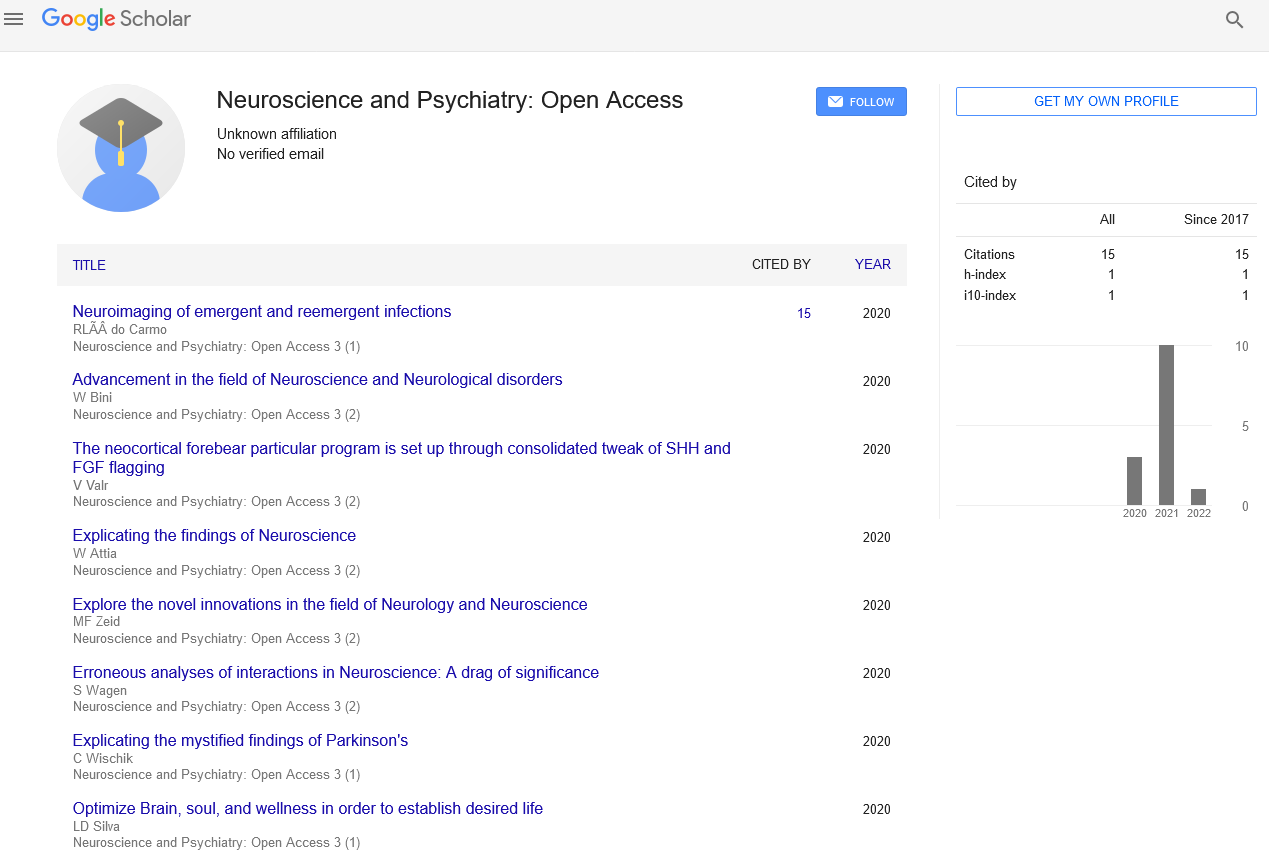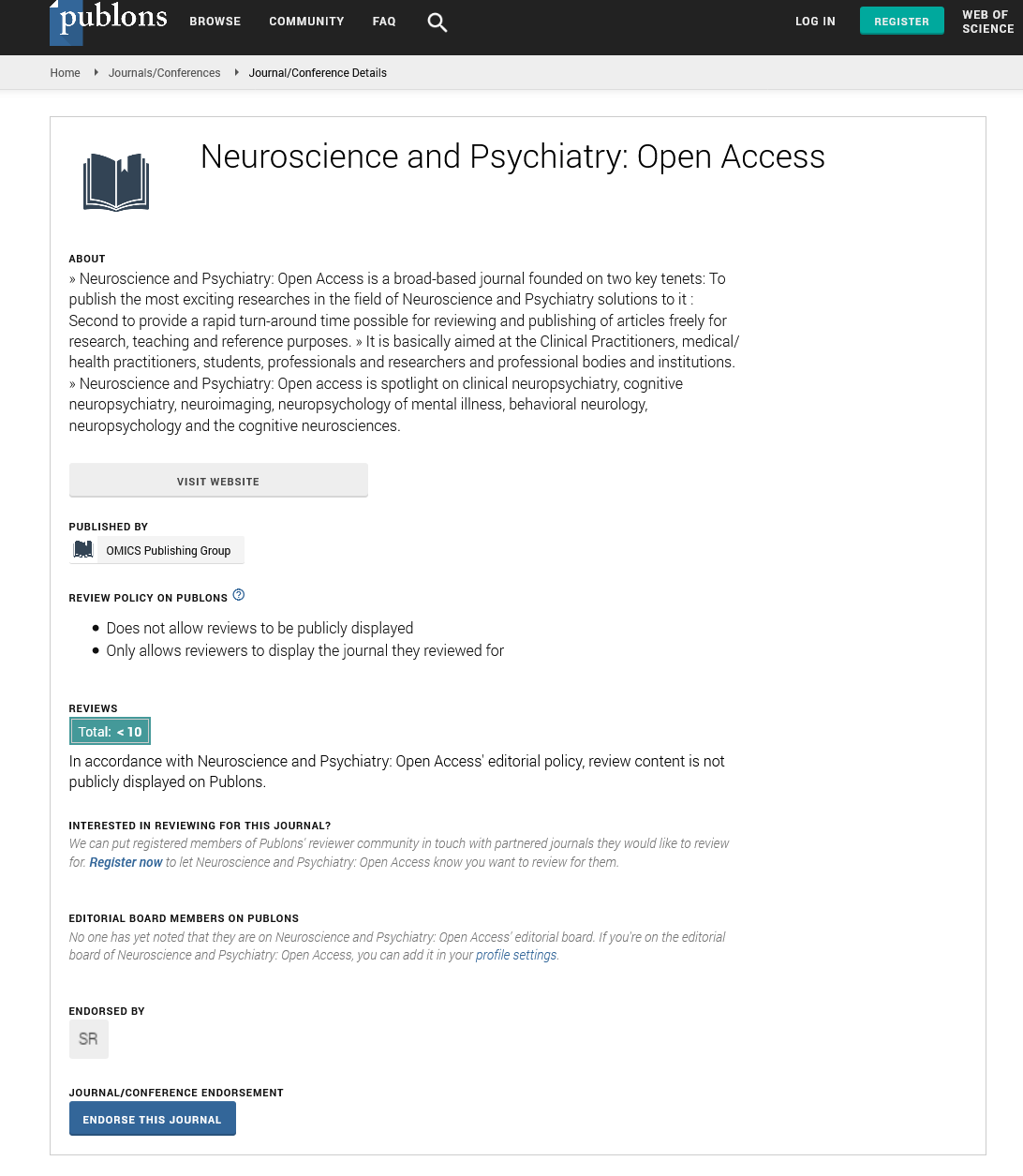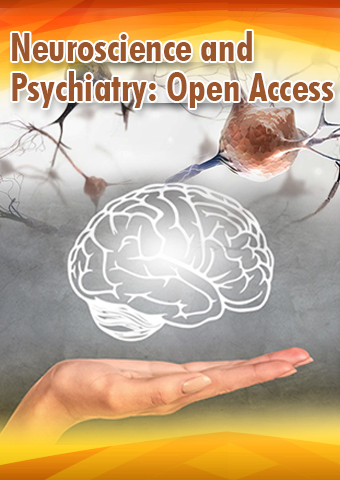Commentary - Neuroscience and Psychiatry: Open Access (2024) Volume 7, Issue 4
The Role of Oxytocin in Social Behavior and Psychiatric Disorders
- Corresponding Author:
- Jignesh Pandya
Department of Psychiatry, Yale University, Connecticut, USA
E-mail: jigneshpandya.civ@health.mil
Received: 19-06-2024, Manuscript No. NPOA-24-140653; Editor assigned: 22-06-2024, PreQC No. NPOA-24-140653 (PQ); Reviewed: 06-07-2024, QC No. NPOA-24-140653; Revised: 17-07-2024, Manuscript No. NPOA-24-140653 (R); Published: 24-07-2024, DOI: 10.47532/npoa.2024.7(4).249-250
Description
Oxytocin, often referred to as the “love hormone” or “bonding hormone,” is a neuropeptide produced in the hypothalamus and released by the pituitary gland. It plays a crucial role in modulating social behavior, emotional processing, and physiological responses associated with social interactions. Beyond its well-known role in childbirth and lactation, oxytocin has garnered significant attention in neuroscience for its implications in psychiatric disorders and social cognition. This article explores the multifaceted role of oxytocin in regulating social behavior, its influence on psychiatric conditions, and potential therapeutic applications.
Biological mechanisms and synthesis
Oxytocin is synthesized as a prohormone in the hypothalamus and transported to the posterior pituitary gland for storage and release into systemic circulation. It acts as a neurotransmitter in the brain, binding to Oxytocin Receptors (OTRs) located in various regions implicated in social cognition, emotional regulation, and reward processing. Oxytocinergic pathways modulate neural circuits involved in social behavior, empathy, trust, and stress responses, highlighting its role as a key regulator of interpersonal interactions.
Social bonding and attachment: Oxytocin promotes bonding between individuals and fosters affiliative behaviors such as maternal caregiving, pair bonding, and social recognition. Animal studies demonstrate that oxytocin release facilitates maternal bonding and promotes nurturing behaviors critical for offspring survival.
Emotional regulation: Oxytocin modulates emotional responses by attenuating stress reactivity, reducing anxiety levels, and promoting positive social interactions. Oxytocinergic signaling influences the amygdala, a brain region involved in processing emotions and threat detection, thereby modulating fear responses and enhancing social approach behaviors.
Trust and empathy: Oxytocin enhances trust and cooperation in social exchanges by promoting prosocial behaviors and reducing social threat perception. Studies suggest that intranasal administration of oxytocin increases trustworthiness judgments and altruistic behaviors towards others, implicating oxytocin in promoting social reciprocity and empathy.
Oxytocin in psychiatric disorders
Dysregulation of oxytocinergic pathways has been implicated in various psychiatric disorders characterized by social deficits, emotional dysregulation, and impaired interpersonal relationships. Understanding oxytocin’s role in these conditions offers insights into Novel therapeutic strategies and potential biomarkers for disease management.
Autism Spectrum Disorder (ASD): Individuals with ASD often exhibit social communication deficits and difficulty in forming social bonds. Oxytocin administration has shown promise in improving social cognition, enhancing emotional recognition, and reducing repetitive behaviors in individuals with ASD. Ongoing research explores oxytocinergic interventions as adjunctive therapies to enhance social functioning in ASD.
Schizophrenia: Schizophrenia is associated with impaired social cognition, emotional blunting, and reduced social engagement. Oxytocinergic dysfunction may contribute to these deficits, highlighting oxytocin as a potential therapeutic target to enhance social interactions and mitigate negative symptoms in schizophrenia. Clinical trials investigating oxytocin supplementation in schizophrenia management are underway to elucidate its efficacy and safety.
Depressive disorders: Major depressive disorder and related mood disorders often involve disrupted interpersonal relationships and social withdrawal. Oxytocin’s role in promoting bonding, reducing stress responses, and modulating mood regulation suggests potential therapeutic benefits in augmenting antidepressant treatments and improving social functioning in depression.
Post-Traumatic Stress Disorder (PTSD): PTSD is characterized by heightened arousal, intrusive memories, and social avoidance following trauma exposure. Oxytocin administration may attenuate fear responses, enhance social support seeking behaviors, and facilitate emotional processing in individuals with PTSD. Research efforts aim to explore oxytocinergic interventions as adjunctive treatments to alleviate PTSD symptoms and improve quality of life.
Therapeutic implications and future directions
The therapeutic potential of oxytocin in psychiatric care extends beyond its physiological roles, offering novel avenues for intervention and treatment enhancement:
Pharmacological interventions: Intranasal oxytocin administration is a non-invasive method to deliver exogenous oxytocin directly to the brain, bypassing the blood-brain barrier. Clinical trials investigate the efficacy of oxytocin in improving social cognition, emotional resilience, and interpersonal functioning across psychiatric populations.
Behavioral therapies: Combining oxytocin administration with behavioral interventions, such as Cognitive-Behavioral Therapy (CBT) or social skills training, may optimize treatment outcomes in psychiatric disorders characterized by social impairments. Integrative approaches aim to capitalize on oxytocin’s neurobiological effects to enhance therapeutic responses and promote adaptive social behaviors.
Precision medicine: Personalized medicine approaches aim to identify biomarkers of oxytocin responsiveness and tailor treatment strategies based on individual neurobiological profiles. Genetic variations in oxytocin receptor genes and neuroendocrine pathways may influence treatment outcomes, guiding personalized interventions in psychiatric care.
Ethical considerations: Ethical considerations in oxytocin research include informed consent, privacy of participant data, and responsible dissemination of research findings. Addressing ethical challenges ensures ethical integrity, transparency, and equitable access to oxytocinergic therapies in clinical practice.
Oxytocin plays a pivotal role in regulating social behavior, emotional processing, and interpersonal relationships across the lifespan. Its involvement in psychiatric disorders underscores its potential as a therapeutic target to improve social functioning, emotional resilience, and quality of life in individuals affected by social deficits. As neuroscience continues to unravel oxytocin’s complex mechanisms and therapeutic implications, interdisciplinary research efforts in neurobiology, psychiatry, and neuroethics will advance our understanding of oxytocinergic pathways and optimize its clinical applications. Embracing oxytocin as a catalyst for social connection and emotional well-being underscores its transformative potential in shaping the future of psychiatric care and promoting human flourishing in diverse populations.


